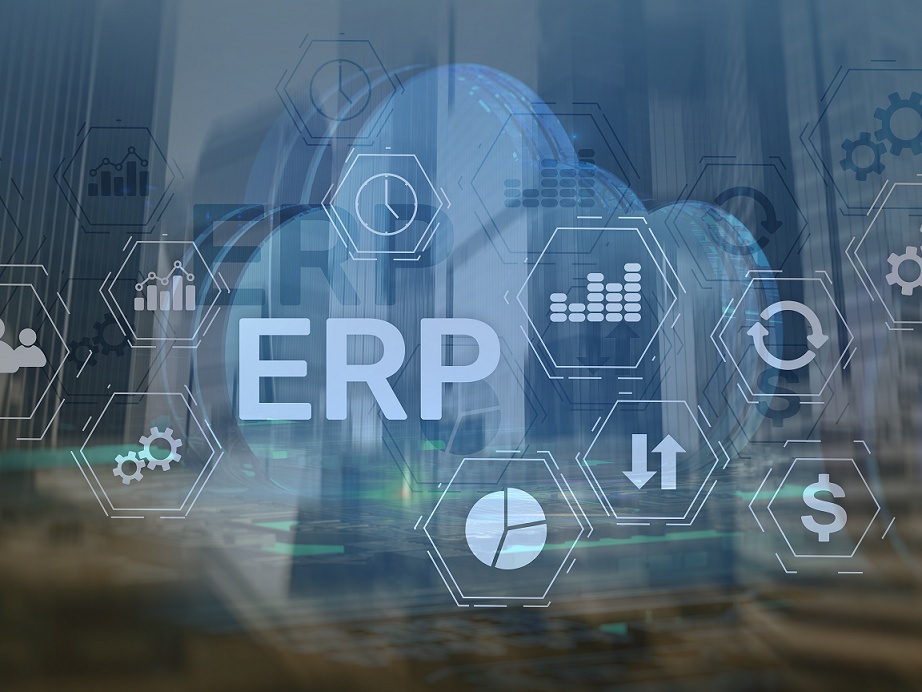Achieving financial success in the world of business is a never-ending struggle that demands innovation, adaptability, and strategic decision-making. Cloud ERP solutions have emerged as a game-changer in this pursuit. Beyond streamlining processes, enhancing collaboration, and improving data accessibility, cloud ERP also plays a pivotal role in impacting your organization's bottom line through substantial cost savings and a compelling Return on Investment (ROI).
- Cost Savings through Infrastructure Reduction
Traditional ERP systems often require extensive in-house infrastructure, including dedicated servers, storage solutions, and a team of IT professionals to maintain them. These capital-intensive requirements can weigh heavily on a company's finances. In contrast, cloud ERP shifts the burden of maintaining these resources to the cloud service provider. This means no more significant capital expenditure on server rooms, cooling systems, or disaster recovery facilities.
Cloud ERP offers a subscription-based model, which allows businesses to pay only for the resources they need, making it a cost-effective solution for companies of all sizes. You can scale your infrastructure up or down according to your requirements, further reducing your operational costs.
- Lower IT Maintenance Costs
With traditional ERP systems, ongoing IT maintenance, updates, and security patches can be a significant expense. Additionally, the need for a dedicated IT staff can inflate labor costs. Cloud ERP solutions handle much of the maintenance, providing regular updates and security patches, which means you can reallocate your IT resources to more strategic tasks.
- Reduced Software Licensing Costs
Traditional ERP systems often involve hefty licensing fees for software, which can be a considerable upfront cost. Moreover, these licenses are often limited to a specific number of users or devices. In contrast, cloud ERP solutions offer flexible subscription-based models, allowing you to add or subtract users as needed without incurring additional licensing fees. This reduces your initial investment and ensures that you pay only for what you use.
- Enhanced Scalability and Flexibility
The scalability and flexibility of cloud ERP systems contribute significantly to cost savings. As your business grows, your ERP system can seamlessly grow with it, eliminating the need for expensive upgrades or system replacements. You can adapt your subscription to accommodate your evolving needs, making it a budget-friendly choice that adapts to your business's changing requirements.
- Streamlined Business Processes
Efficiency and productivity improvements are among the most significant contributors to cost savings through cloud ERP. These systems streamline various business processes, such as inventory management, order processing, and financial reporting. Automation of routine tasks reduces the need for manual intervention, reducing labor costs and the potential for human errors. Moreover, the real-time data access and analytics capabilities of cloud ERP help businesses make informed decisions faster, optimizing operations and reducing operational costs.
- Enhanced Collaboration and Productivity
Cloud ERP facilitates collaboration by providing real-time access to data and tools from anywhere with an internet connection. This feature is precious for businesses with remote or distributed teams. Improved collaboration and communication result in better decision-making and problem-solving, ultimately leading to cost savings and higher productivity.
- Improved Data Security
Data security is paramount in today's digital age. Cloud ERP providers invest heavily in security measures and data encryption to protect your information from cyber threats. These safeguards are typically more robust and up-to-date than those of individual businesses. This added security can save your company from the potentially devastating financial losses associated with data breaches or cyberattacks.
- Rapid Implementation and ROI
Traditional ERP systems can take months or even years to implement fully, resulting in delayed ROI. In contrast, cloud ERP solutions typically have faster implementation timelines. They often come with pre-configured settings, reducing the need for extensive customization and deployment time. This accelerated implementation process allows you to start realizing ROI more quickly.
- Competitive Advantage
By embracing cloud ERP, your business gains a competitive edge. You can respond to market changes more swiftly, allocate resources more efficiently, and enhance customer service. This competitive advantage can translate into higher revenues and more substantial ROI.
- Data-Driven Decision-Making
Cloud ERP's robust reporting and analytics tools enable data-driven decision-making. By accessing and analyzing critical data in real time, businesses can make informed choices that optimize processes, reduce costs, and boost profitability.
In conclusion, cloud ERP solutions are more than just tools for business process optimization; they are strategic investments with a significant impact on your bottom line. The cost savings achieved through reduced infrastructure and IT maintenance costs, lower software licensing fees, and enhanced scalability and flexibility make cloud ERP a wise financial decision. The streamlining of business processes, improved collaboration and productivity, enhanced data security, and rapid implementation contribute to a substantial ROI. These advantages not only ensure that your business remains competitive but also guarantee a brighter financial future. As businesses evolve in the digital age, cloud ERP is undeniably a critical enabler of success.


No comments yet